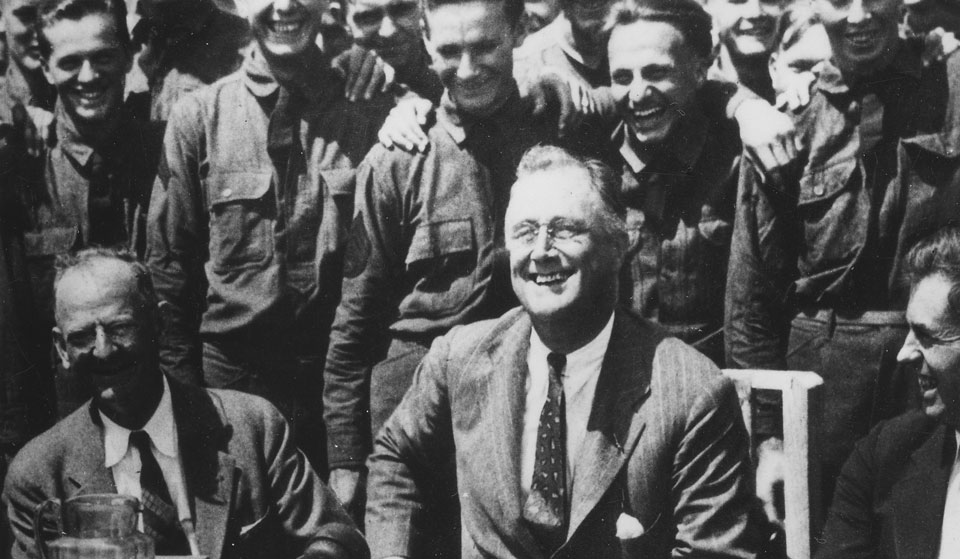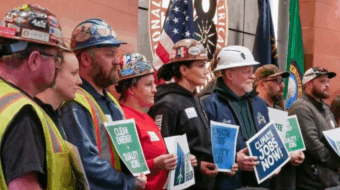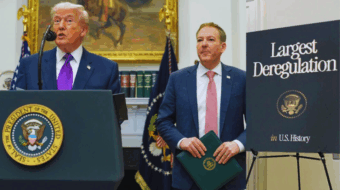
The article below is reprinted from The Grist.
One of the most popular programs from the New Deal is making a comeback, nearly 90 years later.
President Joe Biden recently signed an executive order to create a Civilian Climate Corps. The initiative, he wrote, will provide “good jobs” for young people and train them for environmentally friendly careers, putting them to work restoring public lands and waters, planting trees, improving access to parks, and of course, tackling climate change.
It’s inspired by the original Civilian Conservation Corps, one of President Franklin D. Roosevelt’s signature New Deal programs launched to take on the Great Depression.
Climate advocates celebrated Biden’s move. Naomi Klein, the activist and author of This Changes Everything, said Biden’s announcement was a “hard won victory.” Representative Alexandria Ocasio-Cortez of New York had reportedly sold Secretary of State John Kerry on the idea of a climate corps. The resemblance to the New Deal program — it even has the same acronym, CCC — may explain why the proposal sounds like part of a Green New Deal.
“The Green New Deal is all about a jobs and justice approach to climate policies, so I think that the new climate corps proposal really encapsulates that,” said Danielle Deiseroth, a climate analyst at Data for Progress, a progressive think tank. Not that you’ll hear Biden saying much about a Green New Deal, since commentators on Fox News have turned the slogan into a synonym for “socialist plot that’ll take away your hamburgers.”
The CCC employed 3 million men from 1933, in the depth of the Great Depression, to 1942, after the country had joined World War II. Lasting reminders of the CCC are all around us. Go into a state park or national park anywhere in the country, and you’ll likely see buildings, trails, and hiking shelters built by the program’s volunteers.
Reviving the CCC resonates right now, Deiseroth said, because the pandemic has sent the country into crisis mode with some 18 million Americans receiving unemployment benefits. The Congressional Budget Office recently said that it doesn’t expect the workforce to recover from the blow until 2024.
According to a December survey from the Yale Program on Climate Change Communication, some 85 percent of Americans support reestablishing the Civilian Conservation Corps, though that survey didn’t mention anything about the climate. A different poll from Data for Progress last May found that nearly 70 percent of the public supports the idea of a new, climate-focused corps. Even a majority of Republican voters, 62 percent, liked the idea.
But making it work could prove to be a complicated task. “The original CCC was extremely popular, but it also had some problems,” said Neil Maher, the author of Nature’s New Deal and a history professor at the New Jersey Institute of Technology. The Corps’ history provides insights — encouraging signs and cautionary lessons — for how the Biden administration could structure and promote the program.
In the worst years of the Great Depression, nearly a quarter of the country was unemployed, suicides skyrocketed, and people started hopping on freight trains — “riding the rails” — in search of work. An estimated 2 million Americans wandered the country, many of them young folks who’d felt like a burden to their cash-strapped families. Then came Roosevelt’s New Deal and a slew of new acronyms with the Civil Works Association, Social Security Administration, Works Progress Administration, and the CCC. The Corps took many young men off the streets and gave them a purpose, putting them to work in the wilderness.
Americans came to love the Corps. “Young men, when they came home for visits, would wear their CCC uniforms, and people would sort of flock around them,” Maher said. “There were stories of other young men stealing the uniforms to try to pretend that they were CCC guys.”










